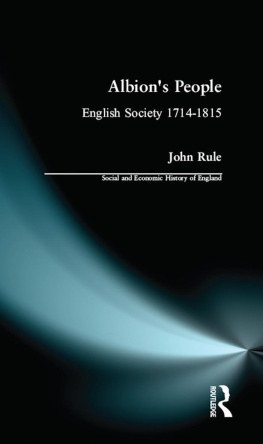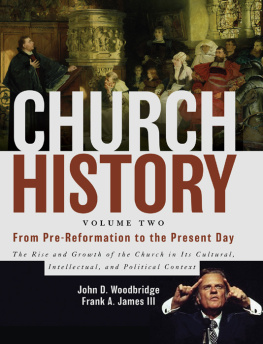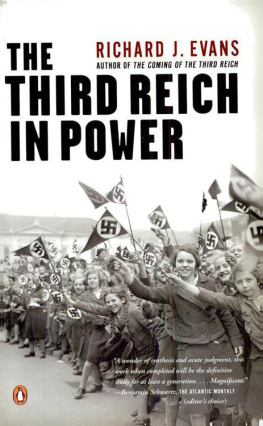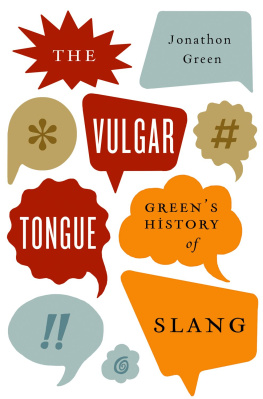- CHAPTER V
- THE HOUSE OF LANCASTER
- 1399-1422
Henry the Fourth
Once safe in the Tower, it was easy to wrest from Richard a resignation of his crown; and this resignation was solemnly accepted by the Parliament which met at the close of September 1399. But the resignation was confirmed by a solemn Act of Deposition. The coronation oath was read, and a long impeachment which stated the breach of the promises made in it was followed by a solemn vote of both Houses which removed Richard from the state and authority of king. According to the strict rules of hereditary descent as construed by the feudal lawyers by an assumed analogy with the rules which governed descent of ordinary estates the crown would now have passed to a house which had at an earlier period played a leading part in the revolutions of the Edwards. The great-grandson of the Mortimer who brought about the deposition of Edward the Second had married the daughter and heiress of Lionel of Clarence, the third son of Edward the Third. The childlessness of Richard and the death of Edward's second son without issue placed Edmund Mortimer, the son of the Earl who had fallen in Ireland, first among the claimants of the crown; but he was now a child of six years old, the strict rule of hereditary descent had never received any formal recognition in the case of the Crown, and precedent suggested a right of Parliament to choose in such a case a successor among any other members of the Royal House. Only one such successor was in fact possible. Rising from his seat and crossing himself, Henry of Lancaster solemnly challenged the crown, "as that I am descended by right line of blood coming from the good lord King Henry the Third, and through that right that God of his grace hath sent me with help of my kin and of my friends to recover it: the which realm was in point to be undone by default of governance and undoing of good laws." Whatever defects such a claim might present were more than covered by the solemn recognition of Parliament. The two Archbishops, taking the new sovereign by the hand, seated him upon the throne, and Henry in emphatic words ratified the compact between himself and his people. "Sirs," he said to the prelates, lords, knights, and burgesses gathered round him, "I thank God and you, spiritual and temporal, and all estates of the land; and do you to wit it is not my will that any man think that by way of conquest I would disinherit any of his heritage, franchises, or other rights that he ought to have, nor put him out of the good that he has and has had by the good laws and customs of the realm, except those persons that have been against the good purpose and the common profit of the realm."
Statute of Heresy
The deposition of a king, the setting aside of one claimant and the elevation of another to the throne, marked the triumph of the English Parliament over the monarchy. The struggle of the Edwards against its gradual advance had culminated in the bold effort of Richard the Second to supersede it by a commission dependent on the Crown. But the House of Lancaster was precluded by its very position from any renewal of the struggle. It was not merely that the exhaustion of the treasury by the war and revolt which followed Henry's accession left him even more than the kings who had gone before in the hands of the Estates; it was that his very right to the Crown lay in an acknowledgement of their highest pretensions. He had been raised to the throne by a Parliamentary revolution. His claim to obedience had throughout to rest on a Parliamentary title. During no period of our early history therefore were the powers of the two Houses so frankly recognized. The tone of Henry the Fourth till the very close of his reign is that of humble compliance in all but ecclesiastical matters with the prayers of the Parliament, and even his imperious successor shrank almost with timidity from any conflict with it. But the Crown had been bought by pledges less noble than this. Arundel was not only the representative of constitutional rule; he was also the representative of religious persecution. No prelate had been so bitter a foe of the Lollards, and the support which the Church had given to the recent revolution had no doubt sprung from its belief that a sovereign whom Arundel placed on the throne would deal pitilessly with the growing heresy. The expectations of the clergy were soon realized. In the first Convocation of his reign Henry declared himself the protector of the Church and ordered the prelates to take measures for the suppression of heresy and of the wandering preachers. His declaration was but a prelude to the Statute of Heresy which was passed at the opening of 1401. By the provisions of this infamous Act the hindrances which had till now neutralized the efforts of the bishops to enforce the common law were utterly taken away. Not only were they permitted to arrest all preachers of heresy, all schoolmasters infected with heretical teaching, all owners and writers of heretical books, and to imprison them even if they recanted at the king's pleasure, but a refusal to abjure or a relapse after abjuration enabled them to hand over the heretic to the civil officers, and by these--so ran the first legal enactment of religious bloodshed which defiled our Statute-book--he was to be burned on a high place before the people. The statute was hardly passed when William Sautre became its first victim. Sautre, while a parish priest at Lynn, had been cited before the Bishop of Norwich two years before for heresy and forced to recant. But he still continued to preach against the worship of images, against pilgrimages, and against transubstantiation, till the Statute of Heresy strengthened Arundel's hands. In February, 1401, Sautre was brought before the Primate as a relapsed heretic, and on refusing to recant a second time was degraded from his orders. He was handed to the secular power, and on the issue of a royal writ publicly burned.
England and France
The support of the nobles had been partly won by a hope hardly less fatal to the peace of the realm, the hope of a renewal of the strife with France. The peace of Richard's later years had sprung not merely from the policy of the English king, but from the madness of Charles the Sixth of France. France fell into the hands of its king's uncle, the Duke of Burgundy, and as the Duke was ruler of Flanders and peace with England was a necessity for Flemish industry, his policy went hand in hand with that of Richard. His rival, the king's brother, Lewis, Duke of Orleans, was the head of the French war-party; and it was with the view of bringing about war that he supported Henry of Lancaster in his exile at the French court. Burgundy on the other hand listened to Richard's denunciation of Henry as a traitor, and strove to prevent his departure. But his efforts were in vain, and he had to witness a revolution which hurled Richard from the throne, deprived Isabella of her crown, and restored to power the baronial party of which Gloucester, the advocate of war, had long been the head. The dread of war was increased by a pledge which Henry was said to have given at his coronation that he would not only head an army in its march into France but that he would march further into France than ever his grandfather had done. The French Court retorted by refusing to acknowledge Henry as king, while the truce concluded with Richard came at his death legally to an end. In spite of this defiance however Burgundy remained true to the interests of Flanders, and Henry clung to a truce which gave him time to establish his throne. But the influence of the baronial party in England made peace hard to keep; the Duke of Orleans urged on France to war; and the hatred of the two peoples broke through the policy of the two governments. Count Waleran of St. Pol, who had married Richard's half-sister, put out to sea with a fleet which swept the east coast and entered the Channel. Pirates from Britanny and Navarre soon swarmed in the narrow seas, and their ravages were paid back by those of pirates from the Cinque Ports. A more formidable trouble broke out in the north. The enmity of France roused as of old the enmity of Scotland; the Scotch king Robert the Third refused to acknowledge Henry, and Scotch freebooters cruised along the northern coast.












